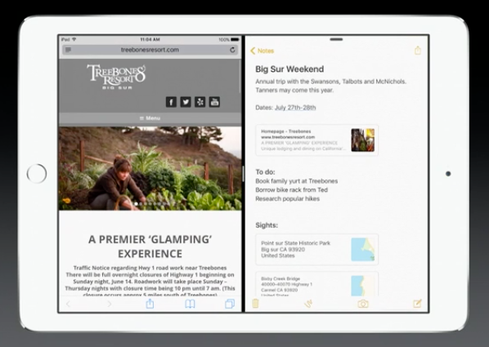Google’s Sidewalk Labs: Exploring Better City LivingGoogle’s Sidewalk Labs: Exploring Better City Living
Sidewalk Labs will help lay the foundation for real-time oversight of civic activities and resources through sensors, software, and ubiquitous connectivity. It will be Google's path to smart city projects.


5 Apple Features We've Seen Elsewhere
5 Apple Features We've Seen Elsewhere (Click image for larger view and slideshow.)
The Internet of Things turns out to be more than merely connecting things to the Internet. Politics, economics, and technology must be aligned before we can truly connect devices.
Yet to continue to grow, Google must make more connections, beyond the markets it already touches, where connections require finesse. Toward that end, it has launched Sidewalk Labs, a company focused on better urban living.
To a hammer, everything is a nail. To an Internet technology firm like Google, everything is connected, or should be.
"Sidewalk [Labs] will focus on improving city life for everyone by developing and incubating urban technologies to address issues like cost of living, efficient transportation, and energy usage," said Google CEO Larry Page in a post on Google+.
To make energy usage efficient, you connect devices and monitor them. To make transportation efficient, you connect vehicles and road sensors and automate them. And so on. Sidewalk Labs will help lay the foundation for real-time oversight of civic activities and resources through sensors, software, and ubiquitous connectivity. It will be Google's path to smart city projects.
Page wants Google shareholders to indulge him in this venture. Though it's "a relatively modest investment and very different from Google's core business," it's a worthy cause, Page insisted in his G+ post.
In the past, Google found it more expedient to request forgiveness than to seek permission. Had it not done so, we would not have the likes of Google Books, Google Maps, Google News, and YouTube.
But Google, a behemoth now, entangled in antitrust and privacy disputes, must move more carefully than it did in its youth. Even its efforts to be a responsible corporate citizen, by doing things such as providing commuter buses for its workers, draw fire.
Sidewalk Labs, based in New York City, offers Google a way to shape smart city development without the baggage of Google's polarizing brand.
[ Think you're ready for IoT? Think again: IoT And The Looming Mobile Tidal Wave. ]
"Sidewalk Labs aims to foster the development of technology products, platforms, and infrastructure that help improve life in cities around the world," the company explained on its website.
Google has hired Dan Doctoroff, who served as CEO of Bloomberg LP and as Deputy Mayor of Economic Development and Rebuilding for the City of New York, to find ways to drive demand for smart city technology. Doctoroff's experience and political connections should facilitate the economic investment and technological connections required to bring city services and resources online.
Cities around the world have begun experimenting with ways to become more connected. In May, Kansas City, Mo., and Cisco signed a letter of intent that outlines several pilot projects to enhance citizen access to information through interactive kiosks and mobile apps and to improve civic infrastructure through smart street lighting and video surveillance.
In a phone interview, Justin Hauser, marketing manager for smart integrated infrastructure at Black & Veatch -- an engineering, consulting, and construction company involved in the Cisco / Kansas City, Mo., project -- said there's a need to put research and planning studies into action and to get the community involved.
"The community is the key," said Hauser. "Many cities are starting to realize that becoming 'smart' is more than a catchphrase. It has value."
And in the next year or two, Hauser said, some of these projects may be far enough along to assess the return on investment.
About the Author
You May Also Like






